January is very similar to December, but the bees in the hive are very busy. As daylight increases, more bees hatch, prompting the queen to lay more eggs. Occasional warm days allow bees to collect pollen, an important nutrient for bee brood. There is also an increased risk of starvation in the hive.
This process happened rather slowly at first, as bees counts were at their lowest level in early January. A small number of adult bees keep eggs and larvae at 35°C, so the queen cannot lay more eggs than the adult bees can heat them. Only after the bees hatch, the queen bee can expand the nest.
As daylight increases, more bees hatch, causing the queen bee to lay more eggs.
It’s So Cold Outside!
The chance of starvation in January is usually low because the queen has not yet laid 100% of her eggs. This happened in March and April.
January is a very cold month, but there are often brief warm periods that are critical to the health of bees. On warm days, bees can “break” their colonies and travel to another part of the hive to eat honey.
The bees may starve because the weather is too cold to climb to another frame to eat the honey. On those warm days (over 50°F), bees may also rest in the bathroom. Bees help to do this by keeping the inside of the hive clean and “holding” it until a warm day. Watching them leave the hive at this time of year, you can actually see them relaxing.
One of the most important New Year’s jobs for bees is collecting pollen on days when we have about 50°F. Pollen is critical for bees in January and February if they are to survive the year. Pollen is used to cultivate the eggs laid by the queen bee.
Read the article: What Do Bees Do In Winter
Avoid opening the hive at this time of year, the propolis seals the bees make in the fall will help ward off the cold.
Help your bees by keeping the hive closed. You can remove the top or retractable lid to refill or add dry sugar as an emergency food source for bees and best bee food for winter.
Beekeeping Activities
Inspection
When inspecting a colony in winter, it is not necessary to open hive. Perform visual and auditory quick external inspections to verify bee colony. Use your ear to hear the bees at the top of the hive; if you don’t hear anything, tap the outside of the hive and the bees should respond.
You can open the hive outside when it is relatively warm and windless, but if the temperature is below 50ºF, don’t touch the hive. When opening the hive, check the inner or outer cover for moisture. If the cluster is away from the side of the food supply, you can carefully move it closer while keeping it together, or move the honey frame closer to it.
Nutrition
Check to see if the colony is running low on food (you can tell by gently lifting the hive)…if so, use a dry candy, fondant or candy board on warm days.
Equipment
Order any replacement bees (packets, nucs, or queens) as soon as possible.
Check all stored equipment for pests such as wax moths.
Take stock. Repair, clean/sanitize, purchase, assemble and paint equipment as needed.
Yard Maintenance
Make sure the hive cover is attached correctly.
Remove ice cubes blocking the entrance to the hive to better aerate the colony. Don’t worry about snow around the entrance or hive; it allows adequate airflow and helps isolate bees.
A few dead bees or a small amount of droppings outside the hive are nothing to worry about, especially after a warm day; this is a sign that they are alive.
Education And Outreach
Don’t forget to renew your membership with your local beekeeping association and add their meetings to your calendar. Also check their bee school schedule; many bee schools are held in late winter.
The American Beekeeping Federation and the American Honey Producers Association usually meet in January.

